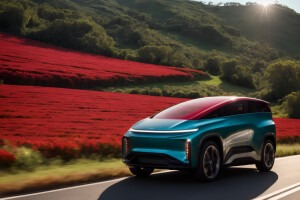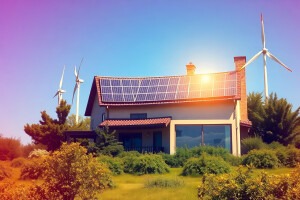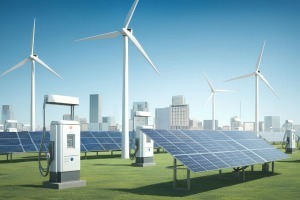Like last year, the summer heat is currently bringing devastating forest fires to Greece. The majority have so far erupted in central Greece and Crete. But how do forest fires start?
Climate
E-mobility is shaping the transformation of the global transport system. The combination of technological innovation, increasing demand and political pressure to reduce emissions has set in motion a transformation that, despite some teething problems, can no longer be stopped. The most exciting current developments in the industry:
Due to the rapid progress of climate change, methods such as CO₂ pricing and carbon credits have become quite popular in recent years. Will they stop climate change?
Energy self-sufficiency describes the ability to meet one’s own energy needs completely independently of external supply networks. At a time when energy prices are fluctuating and climate change requires urgent action, the concept is becoming increasingly attractive. These technologies are suitable for this and this is what they can do:
Industrial production is one of the largest consumers of energy and a major contributor to global greenhouse gas emissions. As energy prices rise and environmental regulations tighten, energy efficiency is becoming a top business priority.
The energy transition is one of the most ambitious projects of our time – a global shift towards a sustainable and climate-friendly energy supply. But the challenges are immense: Renewable energies such as wind and solar do not provide a constant supply of electricity, and the infrastructure in many countries is not designed for the necessary flexibility. This is where smart grids come into play.
The energy sector is undergoing a transformation. Decentralized power generation, renewable energies and the increasing integration of artificial intelligence (AI) require new solutions for greater transparency, security and efficiency. This is where blockchain technology comes into play. But what is behind the hype and what are the challenges?
Energy communities are a key to sustainable energy generation in times of climate crisis. They enable private individuals to become both producers and consumers of renewable energy. In doing so, they promote a decentralized, inclusive and environmentally friendly energy economy. But how do these communities work?
Our world faces a crucial question: How can we manage energy consumption in a way that preserves our planet while meeting the growing needs of our modern society?
The global race for energy is increasingly dominating the geopolitical agenda, while renewable technologies and critical minerals are replacing fossil fuels as the central source of conflict. Blockchain-based decentralized energy systems have the potential to reduce dependencies and increase resilience to geopolitical tensions.















